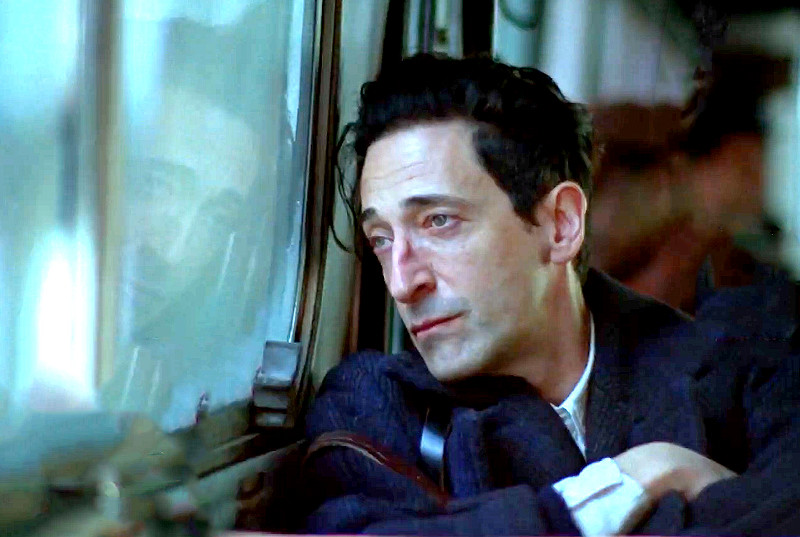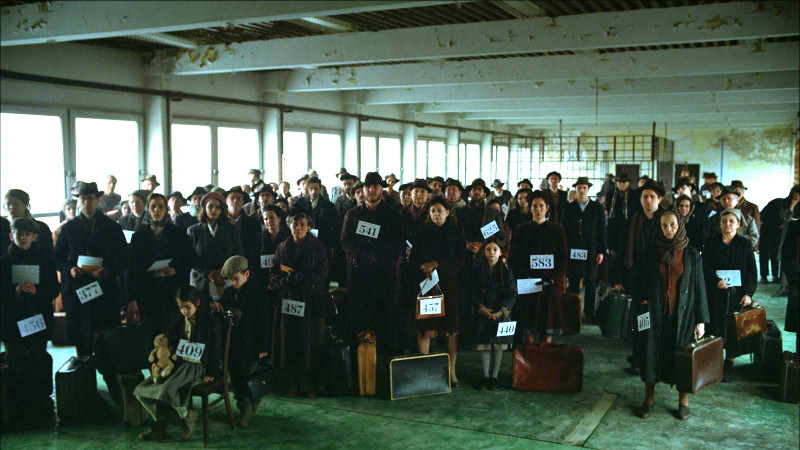
As awards season heats up in Los Angeles, The Brutalist seems to be a likely (arguably, the likely) frontrunner for Best Picture at the upcoming Oscars on March 2, certainly for those who’ve seen it. But that last bit is an important caveat. For, with a running time of three hours, twenty minutes (and a 15-minute intermission with on-screen ticking clock teasing the film’s second half thrown in), I certainly had my own misgivings heading into a November screening at the Academy Museum. And yet I found it to be one of the year’s most compelling movies.
The Brutalist, currently on release, is joined by three other films this awards season, each driving in separate tonal lanes, putting a spotlight on different aspects of Jewish-American cultural identity. And while there’s a temptation to stretch comparisons between them with a broadsheet trend story, they’re each different enough from one another to escape that fate.

Brady Corbet’s film (co-written with Mona Fastvold), the fable-like tale of a Jewish-Hungarian architect and Holocaust survivor, Laszlo Toth (a mesmerizing Adrien Brody in the titular role) attempting to build a new life in America not only defies the familiar tropes of the immigrant story, it turns them on their head (cue the film’s one-sheet of an upside down Statue of Liberty). Its absorbing, unpredictable narrative confounds expectation at every turn. A work of fiction that unfolds like a biopic, it’s simultaneously granular in emotional detail and grand in scope. And as we’re talking 70mm VistaVision scope here, you will want to see it in a cinema.

In the deadpan comedy / intergenerational love story, Between the Temples, Jason Schwartzman stars as Ben Gottlieb, a suburban, mudslide-boozing, widowed cantor (his wife apparently slipped the mortal coil a year before the story begins by slipping on a patch of ice) who falls for his new adult bat mitzvah student, Carla Kessler (Carol Kane). While Schwartzman gets the best line in the film: “In Judaism we don’t have heaven or hell, we have upstate New York,” Kane, a perennial stage and screen favorite (and Academy Award nominee for Hester Street), generated buzz for her performance when the movie came out last summer. Despite positive reviews, it’s an awards outlier at the moment. But you’ve got to hand it to any movie that features Triangle of Sadness’s Dolly de Leon as a headstrong Filipina-Jewish convert, determined that everyone follow the rules. Temples is available on Netflix.

Opening January 24 (following a limited December award’s qualifying run), The Performance, adapted from a short story by Arthur Miller, features Jeremy Piven as Harold May, a down-on-his-luck, decidedly secular, Jewish-American tap-dancer, who makes the ultimate deal with the devil – a highly lucrative ‘one night only’ performance with his dance troupe to entertain the Nazi top brass in Berlin in 1937. A brilliant showcase for Piven (directed here by his sister, Shira Piven), The Performance, also features an unexpected turn from The Full Monty’s Robert Carlyle, unrecognizable (and equally brilliant) as the German cultural attaché, Damian Fugler, who sets the narrative’s wheels in motion.

My personal favorite of this mix, however, is Jesse Eisenberg’s A Real Pain, currently on release. A beautiful, bittersweet gem of a film, it follows two cousins – David (Eisenberg) and Benji (Keiran Culkin), the ultimate millennial odd-couple, who attempt to reconnect with each other and their Jewish cultural heritage on a trip to Poland, the birthplace of their beloved late-grandmother. Starting in Warsaw, they join the embrace of an eclectic tour group as they come face to face with the rich history and ultimate fate of Eastern European Jewish life – along with their own inner-demons and fractured childhood bonds.

Much has already been said about Culkin’s breakout performance here as Benji, a beyond-filterless, eccentric loose cannon (albeit one with an irresistible 24-karat heart of stoner-gold). It’s one which could well see him walking off with a Best Supporting Actor Oscar, come Academy Award time. But it’s the combo of these two (the pairing of David’s uptight yin to Benji’s irrepressible yang) which makes A Real Pain truly pop. That, and the unseen third character in the film, the delicate Chopin nocturnes, which underscore their timeless journey and linger long after the credits roll.
Steven Goldman is a freelance writer based in Los Angeles and a member of the Critics Choice Association.
